Solving Vietnam’s healthcare challenges
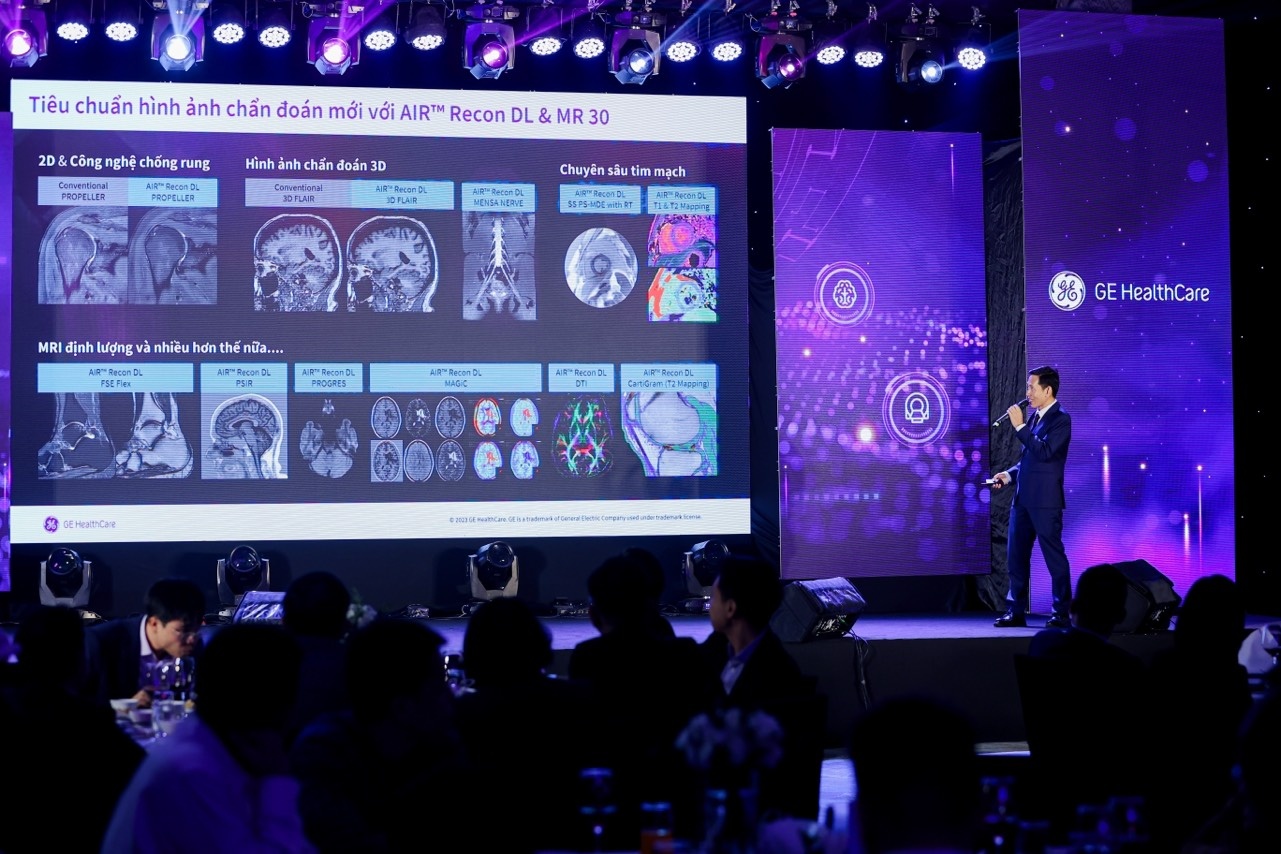 |
| GE held the RSNA Update Dinner Talk on January 11 in Hanoi |
In Vietnam, GE HealthCare concluded the RSNA Update Dinner Talk on January 11, where the company shared its latest advancements introduced at the Radiological Society of North America's (RSNA) 2023 Annual Meeting in Chicago with over 40 key innovations and AI-enabled solutions from its diverse portfolio in a more intimate setting.
Attended by healthcare professionals and stakeholders, the event created a space for discussions on how these technologies could positively impact the healthcare landscape in Vietnam. With a focus on addressing local challenges, the RSNA Update Dinner Talk highlighted the potential for enhanced patient care and more streamlined healthcare practices in the country.
“GE HealthCare's commitment in Vietnam extends beyond advanced technological solutions; it's about fostering a healthier future. We pledge to introduce the latest products and applications to the Vietnamese market in 2024, particularly AI applications designed to enhance image quality, increase diagnostic accuracy, and improve the efficiency and productivity of devices,” said Pham Hong Son, CEO at GE HealthCare.
“Our strategy involves tailoring healthcare innovations to the specific needs of Vietnam, ensuring accessibility and relevance. By blending cutting-edge technology with a profound understanding of local dynamics, we aim to usher in a new era of healthcare that is not only advanced but also deeply connected to the wellbeing of the Vietnamese population. With this, we hope to create a world where healthcare has no limits.”
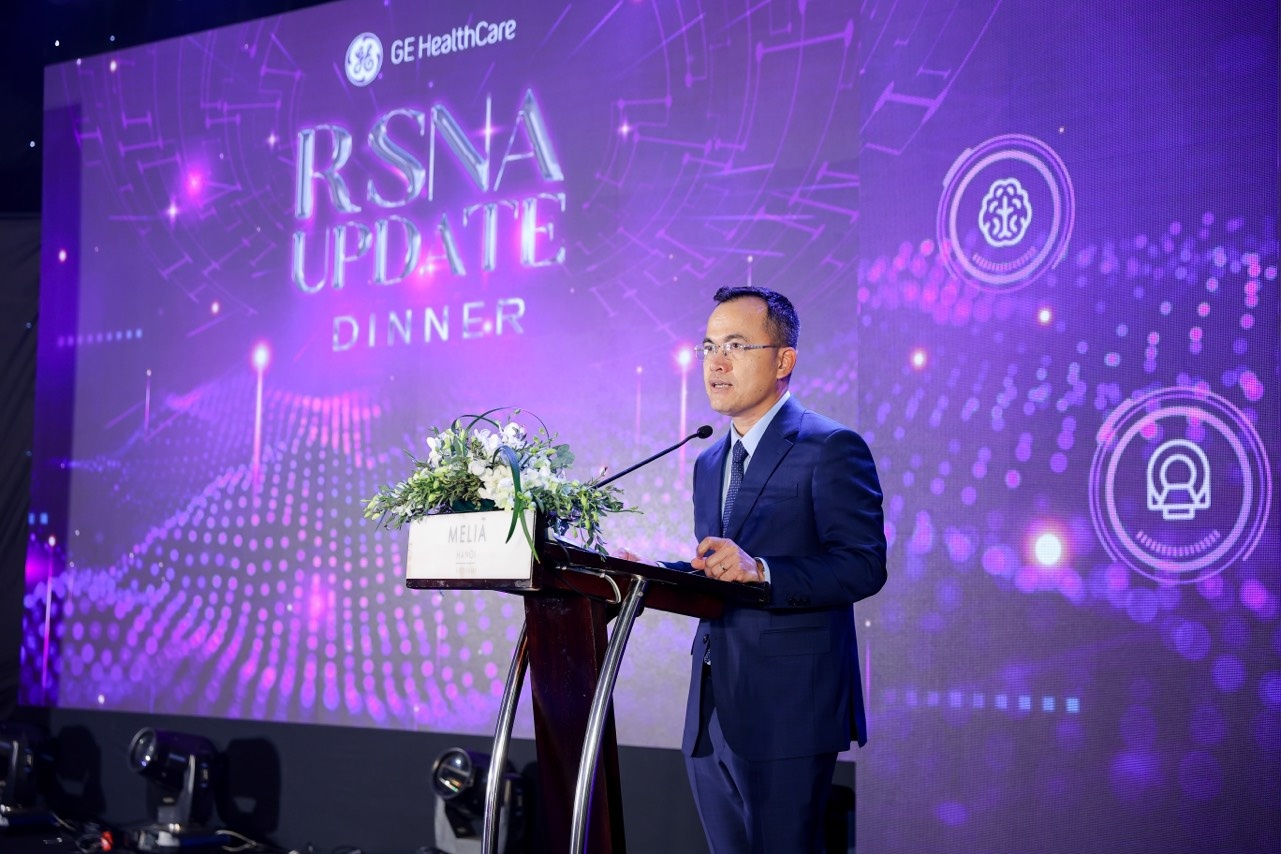 |
| Pham Hong Son, CEO at GE HealthCare, speaking at the event |
As part of this commitment, the showcased technologies at RSNA23 actively contribute to shaping the future of healthcare in Vietnam, highlights technologies and solutions designed to support healthcare providers along clinical care pathways, including oncology, cardiology, and neurology, which allow clinicians to deliver a more personal, precise, and human-focused approach from diagnosis to post-treatment.
These innovations leverage AI and deep learning, streamline workflows, create efficiencies, and foster strategic collaborations, all with a focus on providing a more personal, precise, and human-focused approach to healthcare in the country.
AI in healthcare is transforming the field by enhancing precision and efficiency. Advances such as computer-guided surgical robots and AI applications are facilitating earlier intervention and treatment plans. AI tools, designed to find patterns within vast clinical data, bridge the gap between patient needs and clinician capabilities.
These tools, equipped with natural language processing and voice recognition, automate tasks like transcription, allowing clinicians to focus on patient care. GE HealthCare's AI initiatives include predicting patient response to immunotherapies and creating a cohesive patient data mosaic, illustrating the potential of AI in offering personalized, comprehensive healthcare solutions.
For the second year in a row, GE HealthCare topped the US Food and Drug Administration list of AI-enabled devices with the most 510(k) authorisations of any medtech company, with 58 to date.
In addition to these innovations, the RSNA 2023 Annual Meeting introduced AI in healthcare as a transformative force, which is especially relevant for Vietnam.
Vijay Subramaniam, general manager for Imaging in ASEAN, South Korea and Australia emphasised, “We are excited about the innovations introduced at RSNA 2023, as they bring tangible benefits to both radiologists and patients in Vietnam. These technologies, especially applications with AI and deep-learning, are not just advancements; they are tools designed to ease the workload to healthcare professionals, streamline processes, and improve the overall patient experience.”
“By introducing these solutions locally, we aim to contribute to a more efficient and effective healthcare system, making a positive impact on the daily work of radiologists and, ultimately, the wellbeing of patients,” he said.
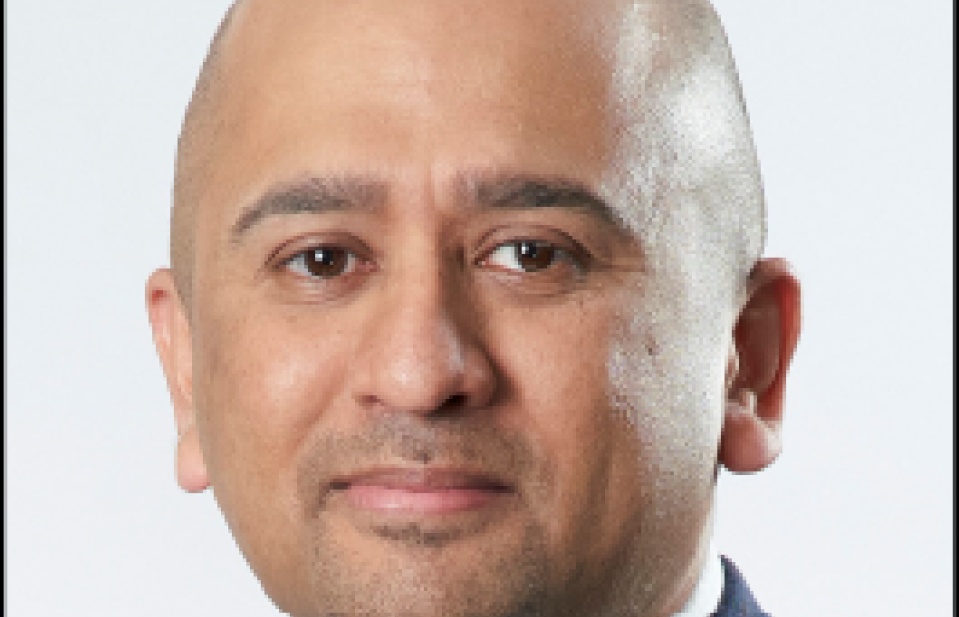 | GE Healthcare's vision for AI-backed radiology AI is transforming the healthcare industry in a variety of ways. The Vietnamese Congress of Radiology and Nuclear Medicine 2022 which took place from August 19 to 20 has shed light on how AI heralds a new era of medical imaging. |
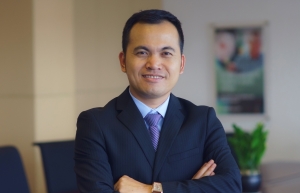 | GE HealthCare's 30-year journey to transform Vietnam's healthcare sector During its 30 years of operation in Vietnam, GE HealthCare has played an active role in closing the care gaps, thereby contributing to the sector's sustainable future. |
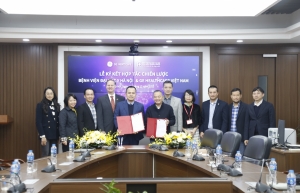 | Hanoi Medical University Hospital and GE HealthCare sign MoU Hanoi Medical University Hospital and GE HealthCare signed an MoU for the education sector on December 18, marking the beginning of a collaborative journey aimed at transforming healthcare education and fostering cutting-edge scientific research in Vietnam. |
What the stars mean:
★ Poor ★ ★ Promising ★★★ Good ★★★★ Very good ★★★★★ Exceptional
Related Contents
Latest News
More News
- Agentic AI set to reshape Vietnam’s enterprise landscape (February 10, 2026 | 12:06)
- Agro-forestry and fisheries exports jump nearly 30 per cent in January (February 09, 2026 | 17:45)
- Canada trade minister to visit Vietnam and Singapore (February 09, 2026 | 17:37)
- New tax incentives to benefit startups and SMEs (February 09, 2026 | 17:27)
- Vietnam forest protection initiative launched (February 07, 2026 | 09:00)
- China buys $1.5bn of Vietnam farm produce in early 2026 (February 06, 2026 | 20:00)
- Vietnam-South Africa strategic partnership boosts business links (February 06, 2026 | 13:28)
- Mondelez Kinh Do renews the spirit of togetherness (February 06, 2026 | 09:35)
- Seafood exports rise in January (February 05, 2026 | 17:31)
- Accelerating digitalisation of air traffic services in Vietnam (February 05, 2026 | 17:30)

 Tag:
Tag:

















 Mobile Version
Mobile Version